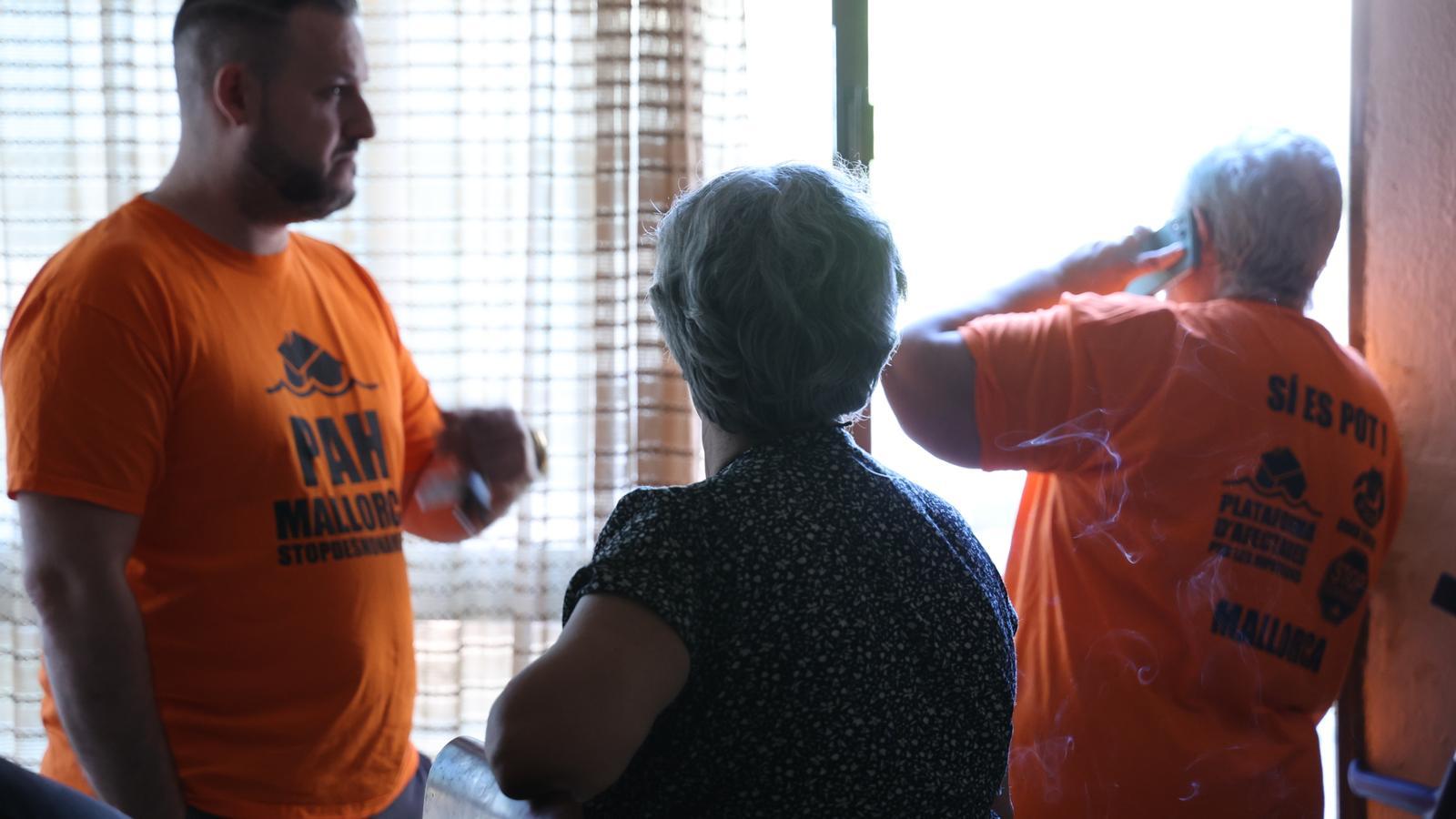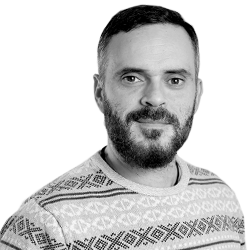Those who work for free for housing: "They tell me it's a waste of time."
Activists from organizations such as the PAH and the Palma Housing Union advocate for humane counseling through their altruistic work.


PalmÀngela Pons has been a volunteer for various causes since the 1970s, "when social services didn't yet exist." At that time, she was helping out at Can Gazà. She experienced the ravages of heroin, "a real scourge," and 14 years ago joined the Platform for People Affected by Mortgages in Mallorca (PAH), a free association that helps people struggling to pay their mortgages, rent, or facing eviction. Like many others, she selflessly dedicates her free time to defending the right to housing. "We're cooks, and I don't have any education. I had to work hard," she says, referring to skills she learned on the job, forced by the crisis generated by the real estate bubble and the rise in the Euribor, which left thousands of families homeless. "It seemed very unfair to me that, after years of paying the bank, they wouldn't give people a chance when the wealthiest people were getting their loans refinanced," she recalls of her early days. The worsening of the problem, which has become transversal and now extends to rentals, has led the association to expand its services. "Housing has become a inflated stock market product with which companies [investment funds and vultures] make a lot of money. Governments allow them to use housing for speculation instead of stopping the monsters and creating housing. In two years, they evicted 250,000 families," he criticizes.
Private landlords
The "monster" Pons refers to has changed its face. "Now the problem has shifted to private owners, when they've seen they can earn 2,000 euros a week with tourist rentals," she asserts, calling for punitive measures to change the system. "Unfortunately, society understands things when they hit their pockets. We need to crack down on rent and declare tense areas to end this boundless greed. In short, we need to legislate. The problem is apocalyptic," she adds.
Ángela's work with the PAH is "hopeful and optimistic" because it shows those affected that "with information, things can change." Many people around her told her she's wasting their time. They don't understand this unpaid involvement. "It's a lot of work, and it's not just about not leaving people helpless," but also about maintaining contact with politicians to provide solutions. "The biggest struggle is for housing to be included in the mandatory constitutional section, a key point in ending speculation. The laws allow tourism to invade what belongs to us. Everyone has benefited from it. Mallorca has sold its house. We need laws that protect us, even from ourselves," she continues.
For Ángela, who names each of the people who have formed or are part of the PAH in the Balearic Islands, it is "a source of pride" to have served "together" more than 10,500 affected people. Among her colleagues is Gloria Olmos, a prison and criminal lawyer who knew "nothing" about mortgages or bank contracts when she was asked to join the human rights commission of the Balearic Bar Association in 2012, in the midst of the eviction crisis. She began by helping women who were separating or had suffered abuse and were facing mortgage payments.
Her collaboration with the PAH intensified after the pandemic. She worked with like-minded organizations to introduce a housing law "that wasn't passed," but allowed her to learn "a lot." Today, her knowledge is at the service of those who desperately come seeking help with a problem that is not only personal but also legal. "It's essential to explain guidelines to them when they receive an eviction or foreclosure lawsuit. Sometimes, paralyzed by fear, they don't react, and the problem worsens. Before, we fought against banks or legal entities; now, against individual landlords or vulture funds," she explains, referring to the lack of protection that stems from "If the person who doubles your rent at the end of a contract is a private individual, it's very difficult to act. They know that if things don't go well, someone will come along and pay it. The fight against this situation must be collective," she insists. Working with the PAH allows Olmos to develop her "advocacy side." "We want to offer a path, a light; to talk with the parties involved to address the problem." Sometimes, they don't have the right to free legal aid for very little, nor a vulnerability report; they don't find the necessary empathy in those who should be guiding them, or they haven't been concerned about the problem," he explains before advocating the need to "humanize legal advice."
Not everyone understands that they work without pay. "Few people do it, and they look down on you or think you don't have the necessary knowledge. People don't value this activism, even among colleagues in the profession," he acknowledges. However, he doesn't give up: "I will continue with my activism."
Miquel Durán is the spokesperson for the Palma Housing Union, a self-managed and independent organization that "does not receive subsidies and in which no one is paid." They work "horizontally and collectivizing learning" through committees that distribute tasks. They meet in open assemblies, where they study cases and receive new ones. "The diversity of profiles and state repression have increased. Police actions are more violent during evictions, and they threaten us with complaints for things that aren't reportable. It's frustrating because it makes the work more difficult, but we must continue because it works," she says. "What we do is useful and leads us toward the goal of achieving free and universal housing," she concludes.
